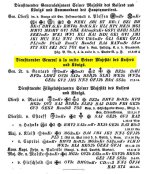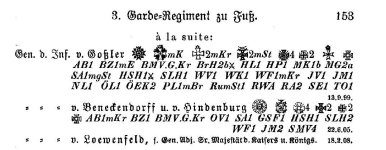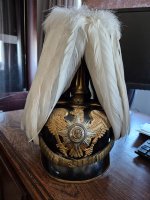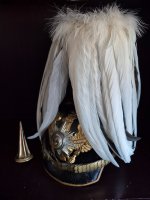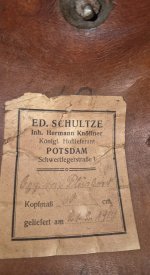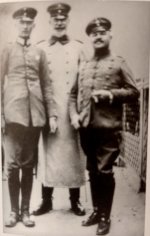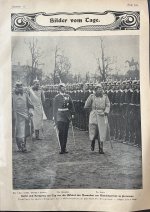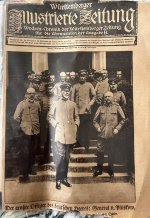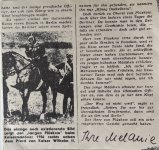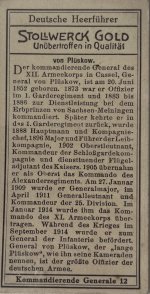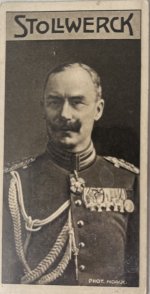I referenced this chap in the Garde-Korps colours thread - Otto von Plüskow. Here we see "lofty" with his friend and Flügel-Adjutant, Major Hans von Boehn. Both Otto and Hans rose to very senior rank; General der Infanterie and General der Kavallerie respectively. They were both in their careers Flügel-Adjutants and in General von Boehn's case also a General à la suite. Although the then Major von Boehn looks rather diminutive in comparison to Major von Plüskow, one must remember that "der Lange Plüskow" stood at 6 feet eight inches (around 204 cm). I was amused to see a copy of the same photo captioned as the "Plüskow brothers". I should think about 1897
Regards
Glenn
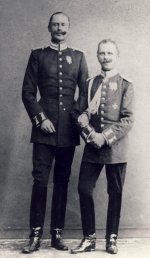
Regards
Glenn


